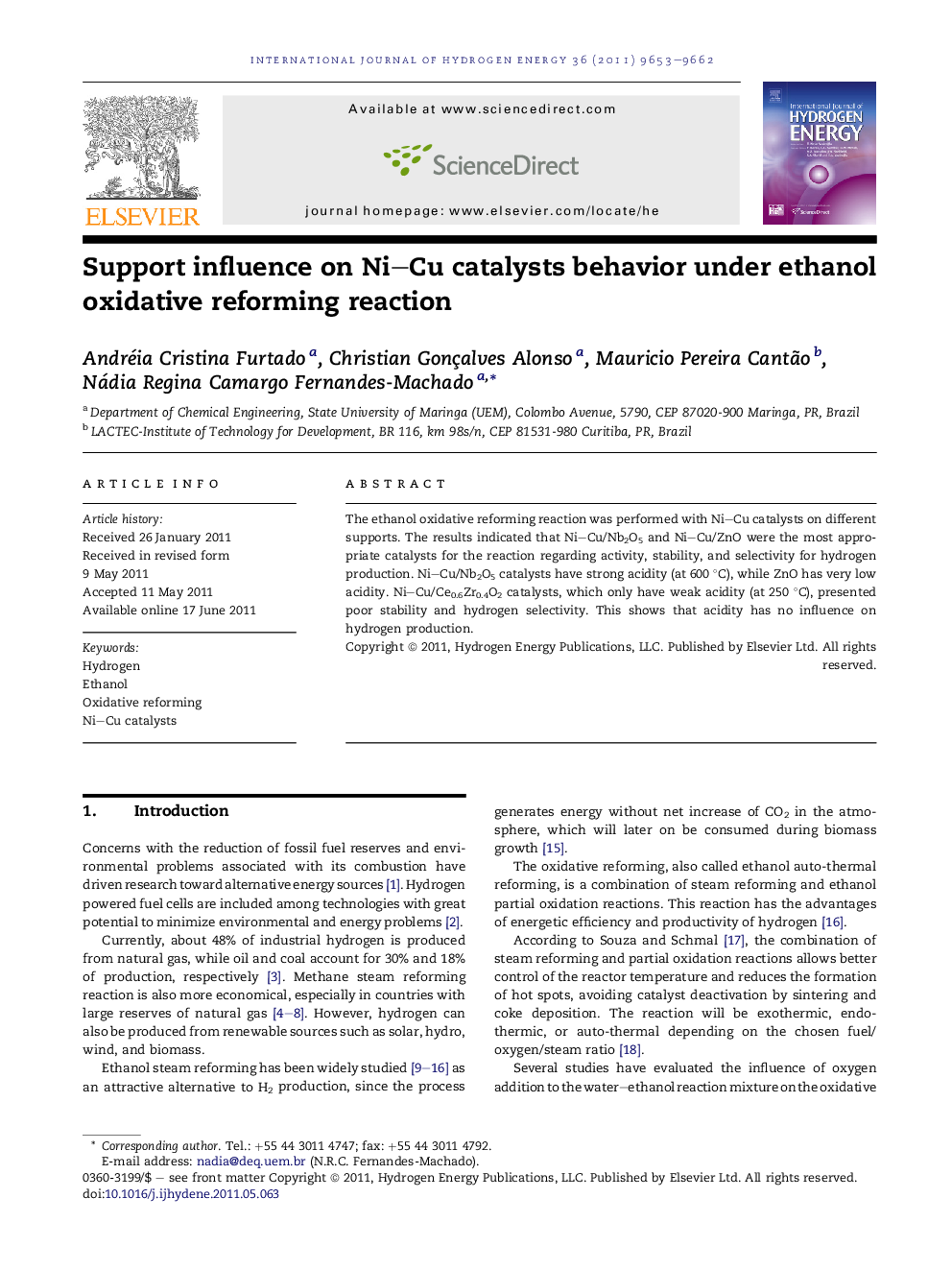| Article ID | Journal | Published Year | Pages | File Type |
|---|---|---|---|---|
| 1278905 | International Journal of Hydrogen Energy | 2011 | 10 Pages |
The ethanol oxidative reforming reaction was performed with Ni–Cu catalysts on different supports. The results indicated that Ni–Cu/Nb2O5 and Ni–Cu/ZnO were the most appropriate catalysts for the reaction regarding activity, stability, and selectivity for hydrogen production. Ni–Cu/Nb2O5 catalysts have strong acidity (at 600 °C), while ZnO has very low acidity. Ni–Cu/Ce0.6Zr0.4O2 catalysts, which only have weak acidity (at 250 °C), presented poor stability and hydrogen selectivity. This shows that acidity has no influence on hydrogen production.
► Ni–Cu catalysts. ► Support influence for ethanol oxidative reforming reaction. ► Acidity influence on hydrogen production. ► Reaction is not favored for catalysts whose support has a large quantity of oxygen atoms on the surface. ► The semiconductivity of ZnO and Nb2O5 supports improves hydrogen production.
